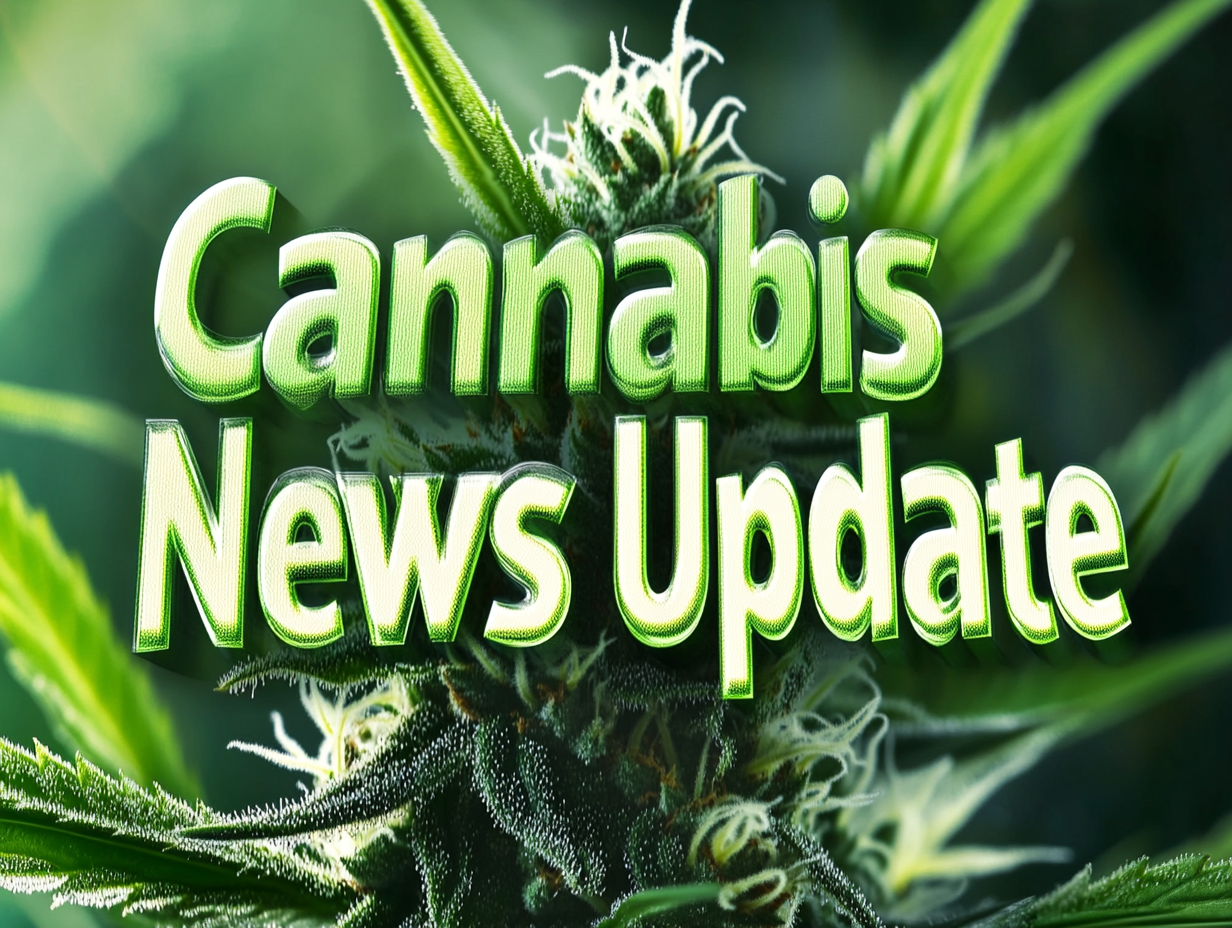Cannabis Relief in Tough Epilepsy Cases
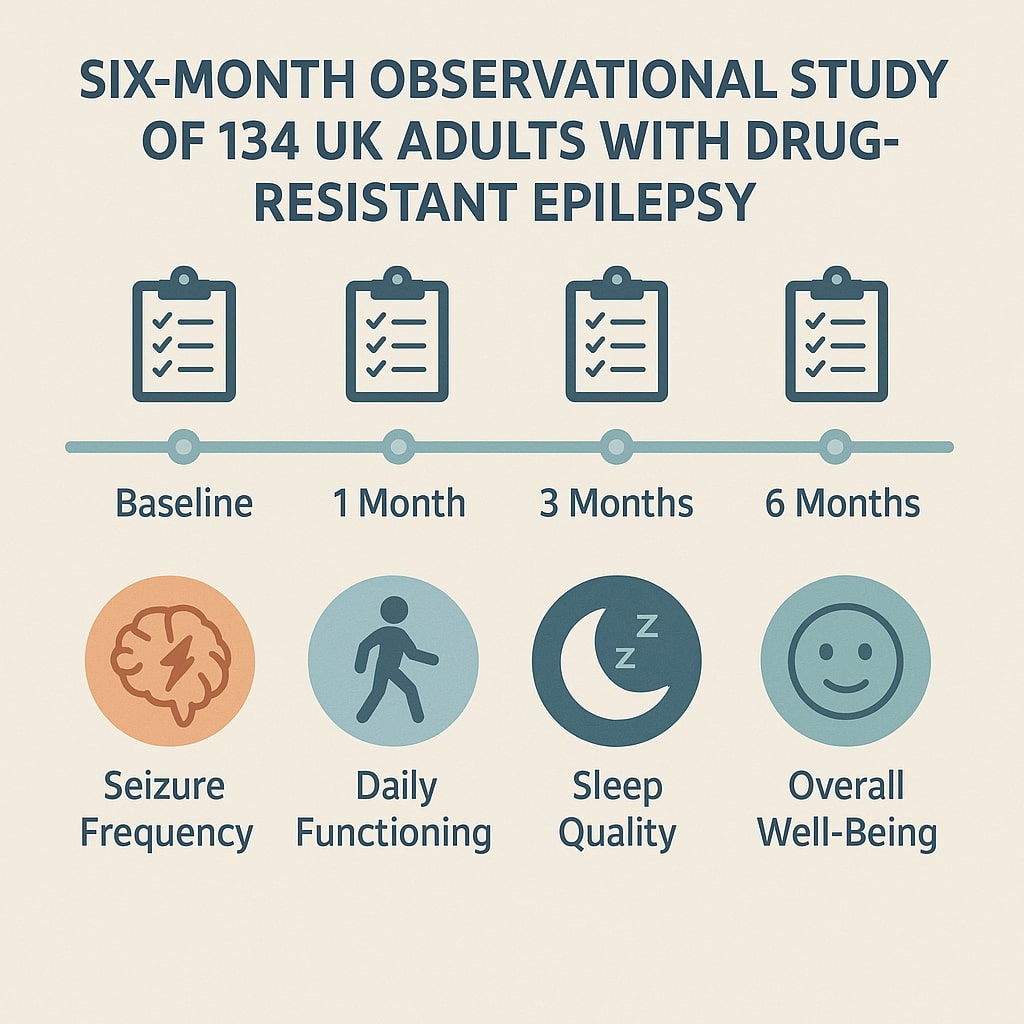
A six-month observational study of UK-resident adults in the UK Medical Cannabis Registry assessed the impact of medical cannabis products in 134 adults with a background of drug-resistant epilepsy.
Subjects received detailed questionnaires when beginning treatment and after one month, three months, and six months and the frequency of seizures, the ability to function on a day-to-day basis, the quality of sleep, levels of anxiety, and a generalized sense of overall well-being.
By the end of the study, 29% reported a notable improvement in how the status of their epilepsy was affecting their everyday lives by enhanced concentration, improved energy levels and less fatigue, and more confidence in undertaking work or social activities.
Many also reported seeing more consistent, restorative patterns of sleep occurring which in turn seemed to reduce the severity of anxiety.
These effects emerged in the first month and continued up to the end of the study, confirming a sustained advantage of ongoing therapy.
Side effects were rare and mild. Side events in five patients totaled 18—mostly dizziness and mild gastrointestinal upset—and none of these resulted in withdrawal.
Notably, the group also had a background of exposures to cannabis in approximately two-thirds of the participants, which we suspect may have reduced the risk for new or severe reactions.
Although the trial cannot prove the improvement resulted from the cannabis products, the real-world data make a compelling argument for randomized controlled trials to determine the safety and efficacy of these treatments for intractable epilepsy.
Source: pmc.ncbi.nlm.nih.gov
Bringing Peace to Veterans: Cannabis Eases Long-Term PTSD Symptoms
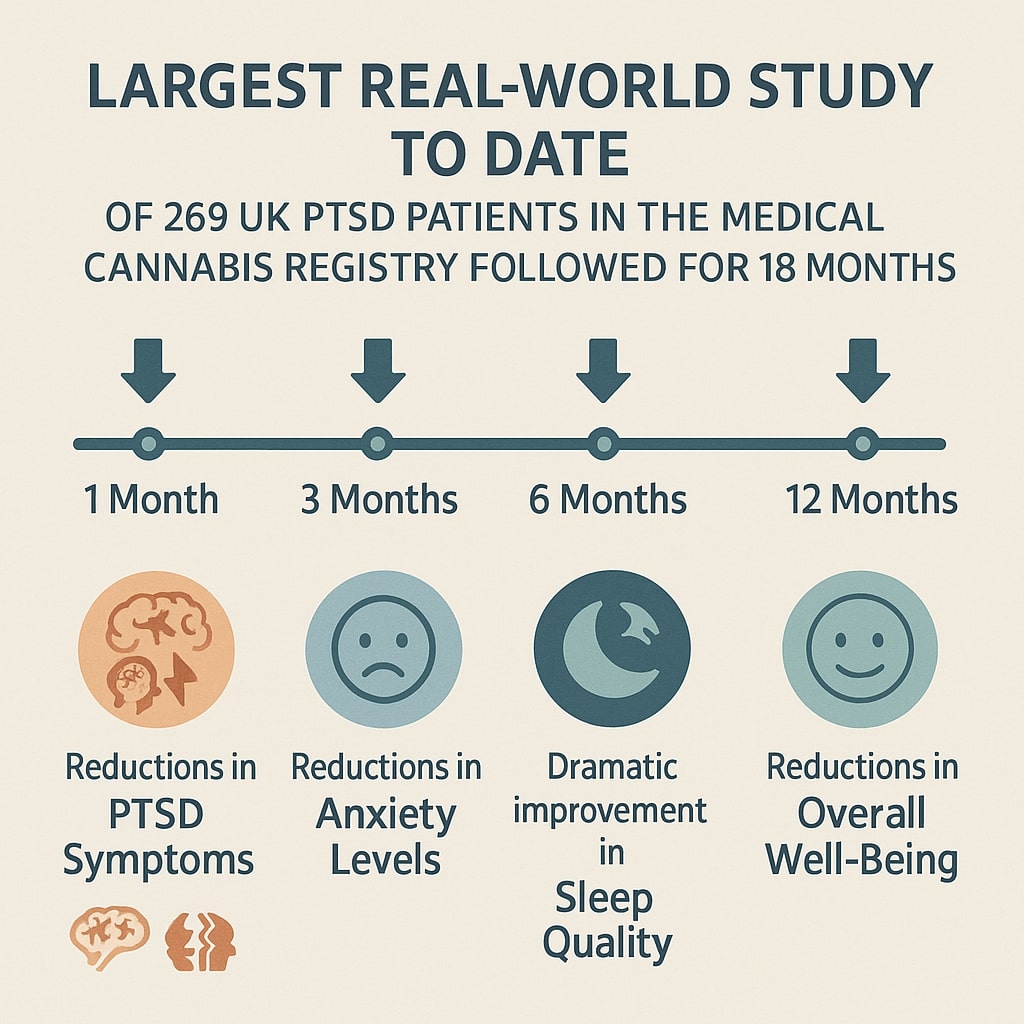
In the biggest real-world study to date, 269 UK PTSD patients enrolled in the Medical Cannabis Registry and were followed for 18 months and reported comprehensive relief across several areas.
At six checkpoint times—one, three, six, 12, and 18 months—patients reported their foremost PTSD symptoms (such as flashbacks and startle responses), levels of anxiety, quality of their nighttime sleep, as well as their overall sense of well-being.
At each visit, there were persistent and statically significant reductions in symptom severity, with many of the veterans reporting fewer nightmares, fewer startle responses, and a calmer frame of mind.
Improvement in nighttime sleep was particularly dramatic, as improved nights of sleep directly related to reductions in daytime anxiety and irritability.
There was a little evidence for gender differences: female participants were slightly more likely to improve than male participants and the need for further inquiry into biological or social variables which might impact responsivity to treatment.
Side effects were reported by about a quarter of the sample in the form of insomnia or daytime lethargy but these tended to be mild and easily reversible within treatment.
These researchers indicate that observational data cannot establish cause but that the replicability of the pattern of improvement warrants the need for rigorous clinical trials both in order to determine long-term safety as well as optimal treatment regimens for the patient population with PTSD.
Source: tandfonline.com
Topical Cannabis Ointment Soothes Eczema
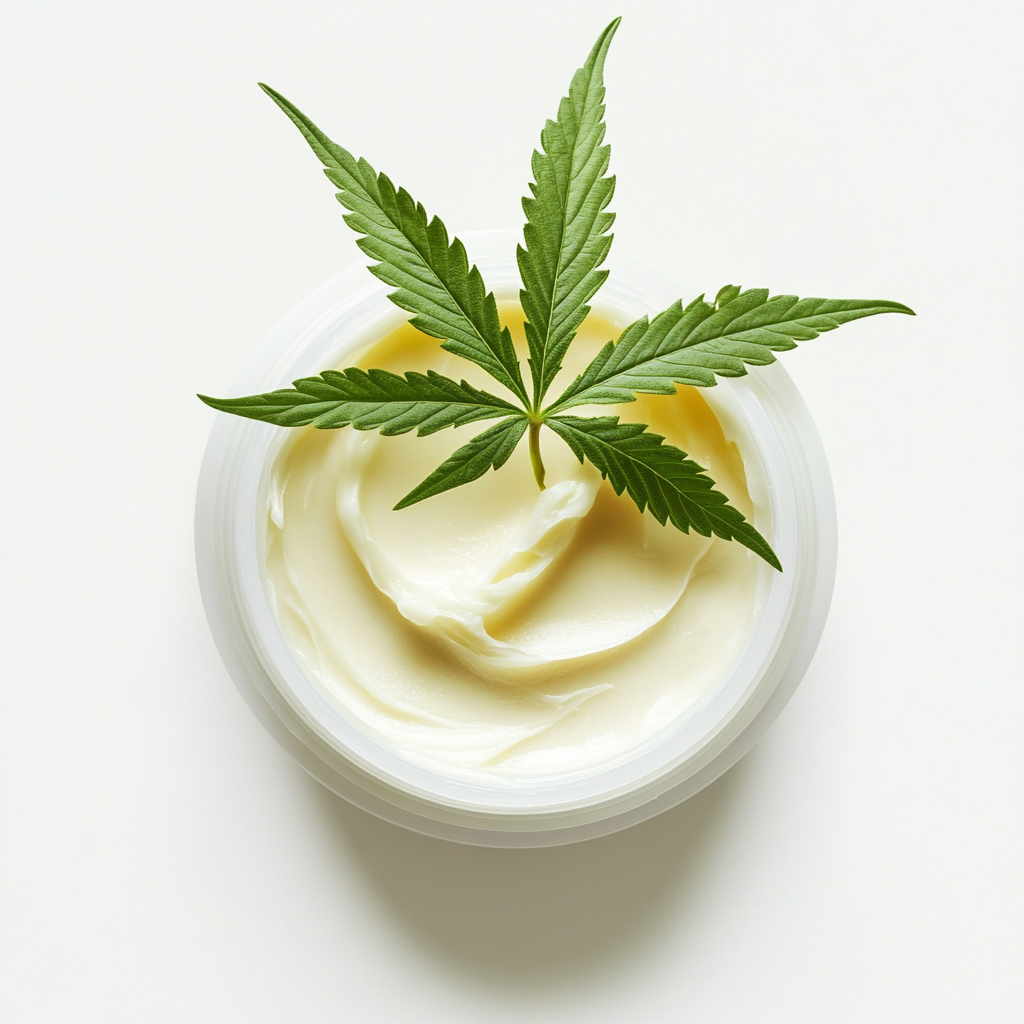
Nine adults with moderate to severe dermatitis underwent a pilot study in controlled conditions to determine the impact of a topical 30% cannabidiol and 5% cannabigerol cream.
The subjects applied the ointment made of cannabis to the affected zones on their forearms for a twice-daily application for eight weeks.
Scientists assessed exact parameters of the skin involving moisture levels, natural oil secretion, barrier function through the use of measurements of water loss, and redness to establish both physiological improvement as well as visible inflammation.
At the eighth week, all subjects exhibited quantifiable improvement: natural oil levels in the stratum corneum were elevated, water loss by the stratum corneum was reduced, and stratum corneum was more hydrated, indicating enhanced barrier function.
Visually, irritation and redness reduced and most users reported a dramatic decline in itchiness, many experiencing nearly complete relief of pruritus.
Importantly, no major side reactions occurred; the ointment was well tolerated over the study duration.
These results are promising that the topical cannabinoids are effectively treating the inflammation and barrier dysfunction that typify eczema.
Larger placebo-controlled studies are recommended to confirm these results and to clarify the process by which CBD and CBG are having their anti-inflammatory effect on the involved skin.
Source: pmc.ncbi.nlm.nih.gov
Medical Cannabis Cuts Cravings in Rehab

A pilot trial in a Canadian residential drug use treatment center implemented medical cannabis as part of routine therapeutic treatment to explore its use as a harm-reduction treatment.
Sixteen clients in treatment for alcohol or opioid dependence received individual cannabis schedules along with counseling and support services.
Clients and staff completed structured interviews at baseline, month one, and month three and reported nighttime sleep, cravings, pain, mood control, and global improvement.
Most subjects reported that medical cannabis reduced overwhelming cravings for their drug of dependence, reduced chronic pain that commonly occurs in withdrawal or chronic use, and enhanced the quality of their night’s sleep—three primary causes of relapse.
Staff emphasized that success was reliant on cautious education of both providers and clients as well as organizational support for dispensing cannabis in a safe method.
Minor drowsiness in a handful of clients was reported but generally resolved in a matter of a few days.
There were no serious side effects.
Though small in scale and lacking a control group, the study indicates that medical cannabis might serve as a valuable adjunct treatment in recovery settings and lays the groundwork for larger-scale controlled studies to determine its potential as a means of sustaining long-term sobriety.
Source: jsad.com
Incoming DEA Chief Promises Swift Review of Cannabis’s Legal Status
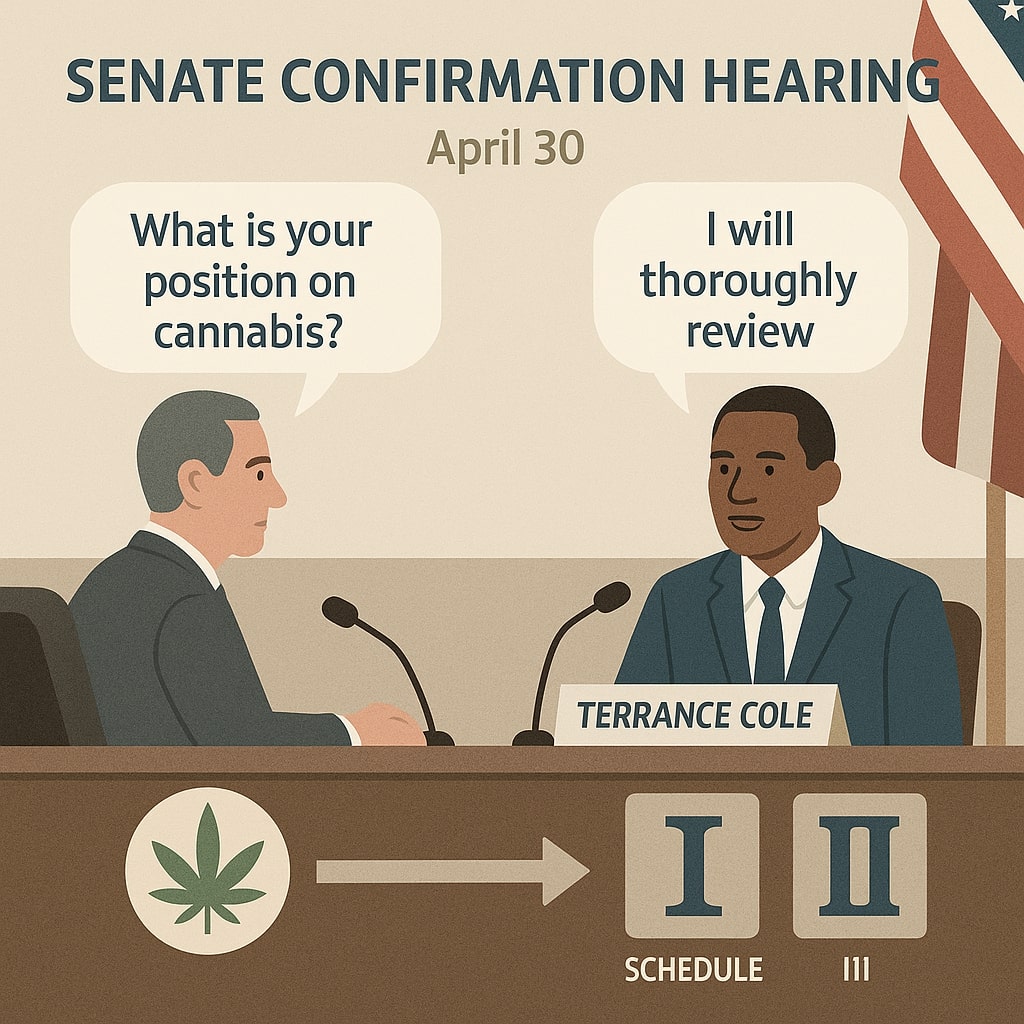
In his April 30 confirmation hearing, President Trump’s nominee to head the Drug Enforcement Administration, Terrance Cole, promised to make reconsideration of the federal status of cannabis—one currently categorized along with heroin and LSD as a Schedule I drug—one of his top priorities should he be confirmed.
In a grilling by Sen. Alex Padilla (CA-D), Cole admitted not yet having a comprehensive brief on the Biden administration’s forthcoming proposal to reschedule cannabis to Schedule III to enable the recognized medical use of the drug and the lowering of the possession penalty.
He promised to thoroughly review scientific reports, experts’ opinions, and public health information before deciding.
Cole also expressed willingness to establish an interagency working group to better address conflict between federal prohibition and states that have legalized medical or recreational pot in a bid to provide clearer law enforcement direction and reduce legal uncertainty.
Asked by Sen. Thom Tillis (R-NC), he reinforced that he would consider how federal and state policy overlap and consider streamlined enforcement rules.
Advocacy organizations hailed the focus on the rescheduling process as a good but stressed that genuine policy reform will depend upon the outcome of the review.
With a timeline not yet defined, participants are anxiously monitoring developments as the confirmation and the following rule-making have the potential to redefine federal weed policy.
Source: marijuanamoment.net


